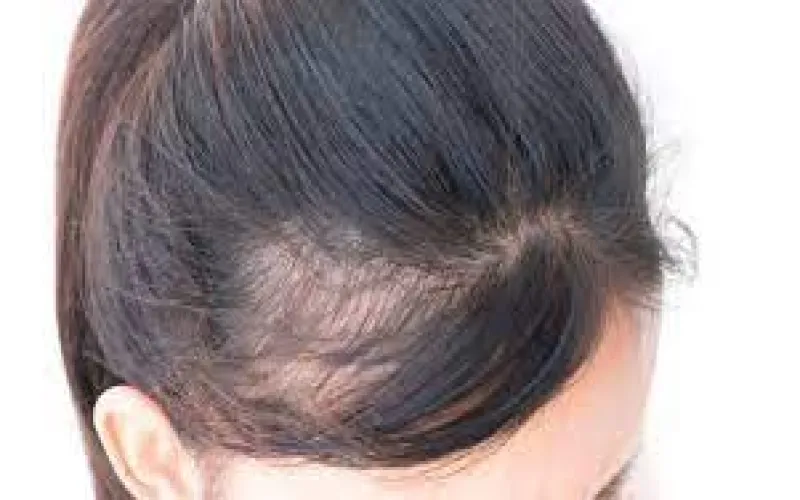Hair Fall Treatment: How to Prevent Hair Loss in Winter with Simple Tips
Posted on 17 November, 2024
Hair fall is a common and concerning issue, especially during the winter season. The dry, cold air, coupled with internal factors like nutrient deficiencies and stress, can lead to increased hair shedding. However, with the right care and routine, you can effectively reduce hair fall and maintain healthy hair throughout winter. This comprehensive guide will provide you with detailed tips, remedies, and preventive measures to combat hair fall during the chilly season.
1. Understanding Winter Hair Fall: Causes and Factors
Before diving into treatment methods, it’s essential to understand why hair fall increases during winter. The primary reasons include:
- Dry Air and Low Humidity: The cold winter air is usually dry, which saps moisture from the scalp and hair, making it brittle and more prone to breakage.
- Hot Showers: The tendency to use hot water during winter can strip the scalp of its natural oils, leading to dryness and hair fall.
- Increased Use of Heating Tools: People often use heating tools like hair dryers, straighteners, and curling irons more frequently in winter, which can damage hair strands.
- Dietary Changes: In winter, we tend to consume more comfort foods that may lack essential nutrients necessary for hair health.
- Reduced Hydration: With lower temperatures, the body’s thirst signals decrease, leading to less water intake, which can result in dehydrated hair and scalp.
- Scalp Health: Dry scalp conditions such as dandruff can worsen in winter, contributing to hair fall.
2. Avoid Hot Water: Protect Your Hair from Heat Damage
Hot showers might feel comforting during winter, but they are a significant culprit for hair fall. Hot water can strip away the natural oils from your scalp, leading to dry, brittle hair. Here’s how you can protect your hair:
- Opt for Lukewarm Water: Use lukewarm water instead of hot water when washing your hair. It helps maintain the natural oils of the scalp, preventing excessive dryness.
- Cold Water Rinse: Finish with a cold water rinse to seal the hair cuticles, making the strands smoother and less prone to frizz.
3. Choose the Right Shampoo and Conditioner: Go Sulfate-Free
The winter season demands more moisture for your hair. Using the right shampoo and conditioner is crucial:
- Hydrating Shampoos: Look for hydrating or moisturizing shampoos, preferably sulfate-free, as sulfates can dry out your scalp further.
- Deep Conditioning: Incorporate a deep conditioning treatment at least once a week. Products with ingredients like shea butter, argan oil, or coconut oil provide extra nourishment.
- Clarifying Shampoo: If you use a lot of styling products, consider using a clarifying shampoo once a month to remove buildup that can weigh down your hair and clog hair follicles.
4. Regular Oiling: Nourish Your Scalp and Roots
Oiling is one of the oldest and most effective treatments for reducing hair fall during winter. It provides the scalp with essential nutrients and improves blood circulation:
- Coconut Oil: Known for its penetrative properties, coconut oil helps moisturize the scalp and strengthen hair from the roots.
- Olive Oil: Rich in antioxidants, olive oil provides deep conditioning, reduces scalp inflammation, and prevents hair fall.
- Argan Oil: Known as "liquid gold," argan oil is packed with essential fatty acids and vitamin E, promoting hair health and reducing breakage.
- Application Tip: Warm the oil slightly before applying it to your scalp. Massage gently in circular motions to improve blood circulation and leave it on for at least an hour before washing off.
5. Diet and Nutrition: Feed Your Hair from Within
A balanced diet plays a critical role in maintaining hair health. Here are some essential nutrients that help prevent hair fall:
- Protein: Hair is primarily made up of keratin, a type of protein. Including protein-rich foods like eggs, lean meat, dairy, and legumes can promote hair growth.
- Biotin (Vitamin B7): Biotin is essential for hair growth. Foods like nuts, seeds, eggs, and sweet potatoes are good sources.
- Omega-3 Fatty Acids: Omega-3s found in fish like salmon and flaxseeds help in moisturizing the scalp and improving hair elasticity.
- Iron and Zinc: Deficiency in these minerals can lead to hair thinning. Include foods like spinach, beans, and pumpkin seeds in your diet.
- Vitamin E: Acts as an antioxidant that helps repair hair damage. Nuts, seeds, and avocados are rich sources of Vitamin E.
6. Stay Hydrated: Keep Your Hair and Scalp Moisturized
Winter leads to a decrease in water intake due to lower thirst levels, but hydration is vital for healthy hair:
- Increase Water Intake: Aim to drink at least 8 glasses of water a day to keep your body and hair hydrated from the inside.
- Hydrating Foods: Include hydrating foods like cucumbers, oranges, and watermelon in your diet to help maintain hydration levels.
7. Gentle Brushing: Minimize Hair Breakage
Brushing your hair can cause breakage if done harshly, especially when your hair is wet and fragile:
- Use a Wide-Tooth Comb: Gently detangle your hair using a wide-tooth comb to reduce breakage.
- Avoid Brushing Wet Hair: Wet hair is more prone to breakage. Let it air dry or use a microfiber towel to pat it dry before combing.
8. Protect Your Hair: Cover It Up
The cold winter air can be harsh on your hair. Here’s how you can protect it:
- Wear a Hat or Scarf: Cover your hair with a hat or a scarf when you go outside to protect it from cold air and wind.
- Use Silk or Satin: Opt for silk or satin-lined hats or scarves to reduce friction and prevent hair breakage.
9. Avoid Over-Washing: Preserve Natural Oils
Washing your hair too frequently in winter can strip away natural oils:
- Limit Washing: Reduce hair washing to 2-3 times a week.
- Dry Shampoo: Use dry shampoo between washes to keep your hair looking fresh and reduce excess oil buildup.
10. Scalp Exfoliation: Remove Dead Skin Cells
Just as your skin needs exfoliation, your scalp can benefit too:
- DIY Scalp Scrub: Mix sugar with coconut oil to create a gentle exfoliator.
- How to Use: Apply the scrub to your scalp and massage in circular motions to remove dead skin cells and buildup.
11. Reduce Heat Styling: Avoid Excessive Hair Damage
Excessive use of heat styling tools can weaken hair strands:
- Air Dry Whenever Possible: Let your hair air dry to reduce exposure to heat.
- Heat Protectant Sprays: If you must use heat tools, always apply a heat protectant spray to minimize damage.
12. Stress Management: Reduce Hair Fall by Reducing Stress
Stress is a major contributor to hair fall. Managing stress can significantly reduce hair shedding:
- Yoga and Meditation: Incorporate yoga and meditation into your routine to manage stress effectively.
- Exercise: Regular exercise not only reduces stress but also improves blood circulation, which is beneficial for hair health.
13. DIY Hair Masks: Deep Conditioning Treatments
Homemade hair masks can provide deep conditioning and strengthen hair:
- Avocado Hair Mask: Mash an avocado and mix it with honey and olive oil. Apply this mask for 30 minutes before washing it off for soft and nourished hair.
- Egg and Yogurt Mask: Eggs are rich in protein, and yogurt has conditioning properties. Mix one egg with two tablespoons of yogurt and apply it to your hair. Leave it on for 20-30 minutes and rinse with cold water.
14. Regular Trimming: Get Rid of Split Ends
Trimming your hair regularly prevents split ends from worsening and keeps your hair looking healthy:
- Trim Every 6-8 Weeks: Regular trims help in removing damaged ends and promoting healthy hair growth.
15. Using Essential Oils: Natural Boost for Hair Health
Essential oils can help improve hair health and reduce hair fall:
- Rosemary Oil: Known for stimulating hair growth, rosemary oil can be mixed with a carrier oil and applied to the scalp.
- Lavender Oil: Lavender oil has antimicrobial properties that can help maintain scalp health.
16. Sleep on a Silk Pillowcase: Reduce Friction and Hair Breakage
Switching to a silk or satin pillowcase can make a significant difference:
- Less Friction: These materials reduce friction between your hair and the pillow, minimizing breakage.
- Smoother Hair: Silk pillowcases help in maintaining the hair’s moisture and prevent tangling.
Winter can be harsh on your hair, but by following these comprehensive tips and making simple changes in your routine, you can effectively prevent hair fall. A combination of the right products, regular oiling, a balanced diet, and proper hair care practices can keep your hair strong, healthy, and beautiful throughout the season.
Remember, consistency is key. Regular care and attention to your hair will yield noticeable results, helping you combat winter hair fall effectively.







